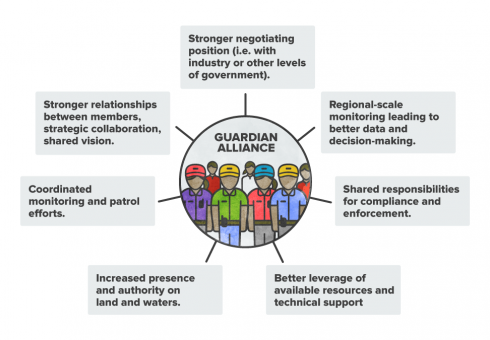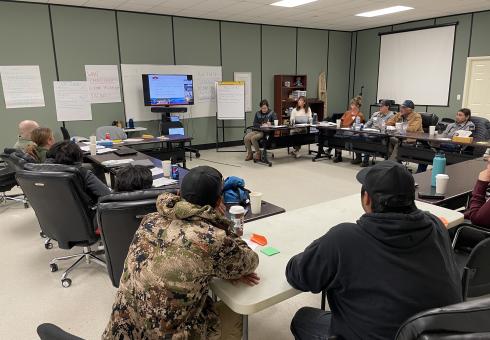Tips for Network and Alliance Building
- Co-create a shared vision and purpose for the network or alliance.
- Consider developing a strategic or annual plan. These documents, plus your vision statement, can help to resolve conflicts if they arise.
- Be clear about network or alliance membership and expectations of these members.
- Establish clear governance structures and decision-making processes at the start. Each network or alliance member must determine who has the authority to make decisions on behalf of their community or organization and what decisions they can make. A Terms of Reference can help to clarify issues of governance, decision-making, and engagement.
- Take the necessary time to build trust and strong relationships amongst members. Support and foster regular communications, including regularly scheduled calls or face-to-face meetings
- Focus on easy wins and low-hanging fruit in the beginning. Tackle more complex issues when relationships have deepened.
- Find easy ways for members to report back to their community or organization about the activities and successes of the network or alliance.
- Make sure that everyone involved understands that not all members can have equal capacity, funding or political will to contribute to the initiative in the same way.
- Keep the network flexible and nimble. Enable members to maintain autonomy by opting in or out of specific activities or initiatives.
- Develop data and information sharing agreements between member Nations if applicable.








